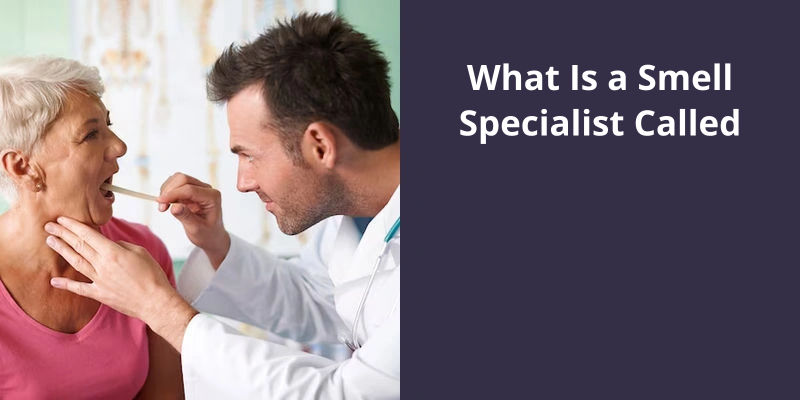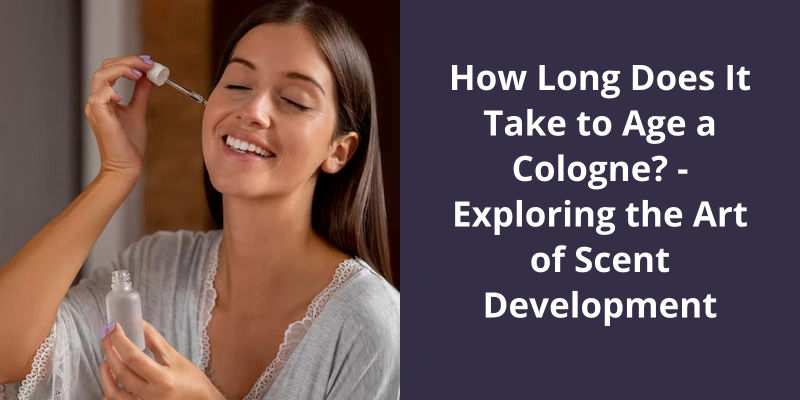In the realm of sensory perception, the intricate relationship between smell and taste is a fascinating subject that’s captivated scientists and medical professionals for centuries. And when it comes to understanding and addressing issues related to these senses, an individual who possesses a profound understanding and expertise in this realm is sought after. This is where an otolaryngologist, also known as an ENT (ear, nose, and throat) specialist, steps into the limelight. Serving as the vanguard against diseases and disorders affecting the ear, nose, throat, head, and neck, these specialized doctors immerse themselves in the intricate complexities of this sensory realm. With their expertise and knowledge, otolaryngologists treat both smell and taste disorders, ensuring that individuals who’re grappling with these challenges can regain their sense of connection to the world around them.

What Is Smell Therapy Called?
Smell retraining therapy, also known as SRT, is a form of treatment specifically designed to alleviate the loss of smell, commonly referred to as hyposmia or anosmia. This therapeutic approach is particularly effective for individuals who’ve experienced a reduction in their ability to detect odors due to various factors such as allergies, nasal polyps, viral infections, or head trauma.
The therapy involves the use of specific scents, such as essential oils or diluted fragrances, that are repeatedly smelled over a period of time. The goal is to stimulate the olfactory system and reestablish the connection between the olfactory nerves and the brain.
During the therapy sessions, individuals are encouraged to actively engage with the scents by sniffing them for a designated amount of time. This focused exposure allows the brain to slowly rewire and adapt, ultimately leading to a gradual improvement in the ability to detect and recognize smells. The frequency and duration of the therapy can vary depending on the severity of the smell loss and individual progress.
Numerous studies have shown positive outcomes, with many individuals reporting a significant improvement in their olfactory abilities after completing the retraining program. This therapy not only helps individuals regain their ability to enjoy the pleasurable aspects of smelling, such as appreciating the aroma of food or experiencing familiar scents, but it can also enhance safety by enabling individuals to detect potentially dangerous odors like gas leaks or smoke.
Developed by Dr. Thomas Hummel, this therapy involves the repeated exposure to specific scents to stimulate the olfactory system and retrain the brain.
Loss of smell, medically known as anosmia, is a condition that should be assessed and addressed by a specialized healthcare professional. To effectively diagnose and treat this issue, individuals are advised to consult an ENT specialist, also known as an otolaryngologist. These medical experts possess the knowledge and expertise to accurately evaluate the underlying causes and develop appropriate treatment plans for individuals experiencing a diminished sense of smell.
What Doctor Treats Sense of Smell?
Loss of smell, also known as anosmia, is a health condition that can greatly impact an individuals quality of life. It’s essential to seek evaluation and treatment from a specialized medical professional, such as an ENT specialist or otolaryngologist. These doctors have a deep understanding of the complex anatomy and functions of the ear, nose, and throat, making them well-suited to diagnose and treat issues related to the sense of smell.
They possess extensive knowledge of how the olfactory system works and can identify potential causes of smell loss, whether they’re related to nasal obstruction, sinus infections, head trauma, or other underlying medical conditions. These specialists utilize a combination of medical history assessments, physical examinations, and diagnostic tests to determine the root cause of the patients anosmia.
Once the underlying cause of the smell loss has been identified, the ENT specialist will develop an individualized treatment plan. Depending on the diagnosis, treatment options may include medications, surgical interventions, or a combination thereof. For instance, if the cause of anosmia is due to a nasal obstruction, the ENT specialist may recommend surgical procedures to remove the blockage, allowing for proper airflow and restoration of the sense of smell. Alternatively, if the loss of smell is a result of an underlying medical condition, such as a sinus infection or allergies, the specialist may prescribe medications to manage the symptoms and facilitate recovery.
Differentiating Between Temporary and Permanent Loss of Smell: This Topic Could Explore the Various Causes of Temporary and Permanent Anosmia, as Well as the Potential Treatment Options for Each.
Differentiating between temporary and permanent loss of smell involves exploring the various causes of anosmia and understanding potential treatment options. Temporary loss of smell can be caused by conditions such as the common cold or sinusitis, and typically resolves on it’s own once the underlying cause is treated. On the other hand, permanent loss of smell can be caused by factors like head trauma, certain medications, or neurodegenerative diseases. Unfortunately, there’s no cure for permanent anosmia, but some treatment options may help manage the condition. This could include medications, nasal sprays, or rehabilitation techniques that focus on stimulating the senses.
Source: Hyposmia and Anosmia – ENT Health
Detecting and diagnosing smell-related issues can be a complex task, but thankfully, there’s a medical test available for this purpose. The University of Pennsylvania Smell Identification Test (UPSIT) provides an objective and quantitative evaluation of a person’s olfactory function. This examination comprises 40 different odors, presented individually on pads that patients can scratch and then sniff, allowing healthcare professionals to assess their sense of smell accurately.
Is There a Medical Test for Smell?
There’s a medical test available to assess ones sense of smell called the University of Pennsylvania Smell Identification Test (UPSIT). This test serves as an objective and quantitative measure of olfactory function. The UPSIT comprises a series of 40 different odors, each of which has been microencapsulated on a pad. The patient undergoes the test by scratching each pad with a pencil and subsequently sniffing it.
The test enhances objectivity by providing clear guidelines and quantifiable data that prevent subjective interpretations from influencing the results. Through this test, a medical specialist gains deeper insights into a patients olfactory capabilities and can make more accurate diagnoses or recommendations for treatment.
The utilization of microencapsulation technology on the pads allows for controlled release of each odor during the test. This method ensures consistency in the delivery of each smell, preventing contamination and ensuring a reliable assessment of a patients smell identification abilities. Additionally, the scratch-and-sniff technique employed during the UPSIT is user-friendly and minimizes any discomfort that may be associated with the test.
By using 40 encapsulated odors and a scratch-and-sniff method, this objective test provides valuable insights into a patients olfactory function, aiding in the diagnosis and management of olfactory disorders.
Common Olfactory Disorders: This Topic Could Discuss the Different Types of Olfactory Disorders That Can Be Diagnosed or Managed Through the Smell Identification Test.
A smell specialist, also known as an olfactory specialist or an olfactologist, is an expert in diagnosing and managing olfactory disorders. Common olfactory disorders include anosmia (loss of sense of smell), hyposmia (reduced sense of smell), and parosmia (altered sense of smell). These disorders can have a significant impact on a person’s quality of life, as they affect their ability to perceive and enjoy different scents. Smell specialists may use a variety of methods, such as the smell identification test, to assess a person’s sense of smell and determine the best course of treatment or management for their specific condition.
Conclusion
Their expertise and knowledge in this area ensure that they can provide the necessary medical care and guidance to address any challenges and improve the overall quality of life for individuals affected by smell and taste disorders.





